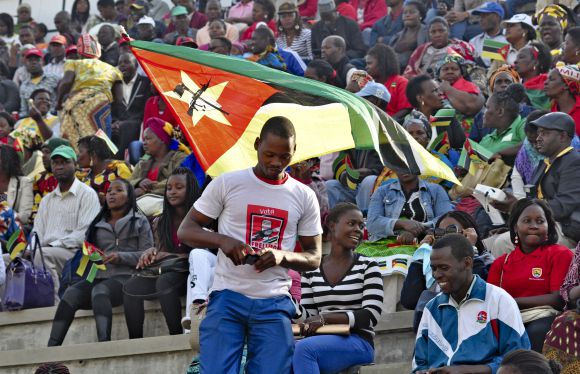Governor of Banco de Moçambique delivers opening address at the 7th ESCB Steering Committee
Mozambique will grow 3.6% this year, says Economist Intelligence Unit

File photo
The Economist Intelligence Unit (EIU) has this week cut Mozambique’s growth forecast to 3.6 percent, half the rate registered in the last decade and the result of lower public spending, weak exports and disturbances in agricultural production.
“We expect real GDP growth to slow to 3.6 percent in 2016 [following a forecast in August of 3.8 percent], dropping from an annual average of 7.2 percent in the last decade, reflecting a sharp drop in public spending, weak export performance in a context of a fall of the price of raw materials and disturbances in agricultural production because of weather,” the unit’s latest analysis of the country reads.
In the analysis, sent to investors by the economic analysis unit of British magazine The Economist that Lusa has access to, experts say that “a fall in investment is likely,” citing “high inflation, currency volatility and growing political risk”.
Looking specifically at central Mozambique, Economist analysts anticipate that “economic activity, particularly in the coal industry, will be disturbed because of the insecurity and violence.”
From next year, the EIU anticipates accelerating average growth of 5.1 percent between 2017 and 2020, driven by macroeconomic stabilisation and recovery of investor confidence. The International Monetary Fund forecasts growth of 6 percent this year and 6.8 percent in 2017, but in the first half of this year the Mozambican economy, according to the National Institute of Statistics site, grew only 4.4 percent.
Mozambique is experiencing a period of multiple crises, marked by economic growth cooling, strong devaluation of the metical against the dollar, lowering of commodity prices and exports, a sharp rise in inflation and a drop in foreign investment and foreign aid as a result of the scandal involving the state’s undiscosed loans that skyrocketed the values of public debt.
The country is still going through a political and military crisis between the government and the Mozambican National Resistance (Renamo), which has worsened in recent months and affects the movement of people and goods in the central region. As a result of these combined effects, investment intentions in Mozambique fell 48 percent in the first half of 2016 compared to the same period last year.













Leave a Reply
Be the First to Comment!
You must be logged in to post a comment.
You must be logged in to post a comment.